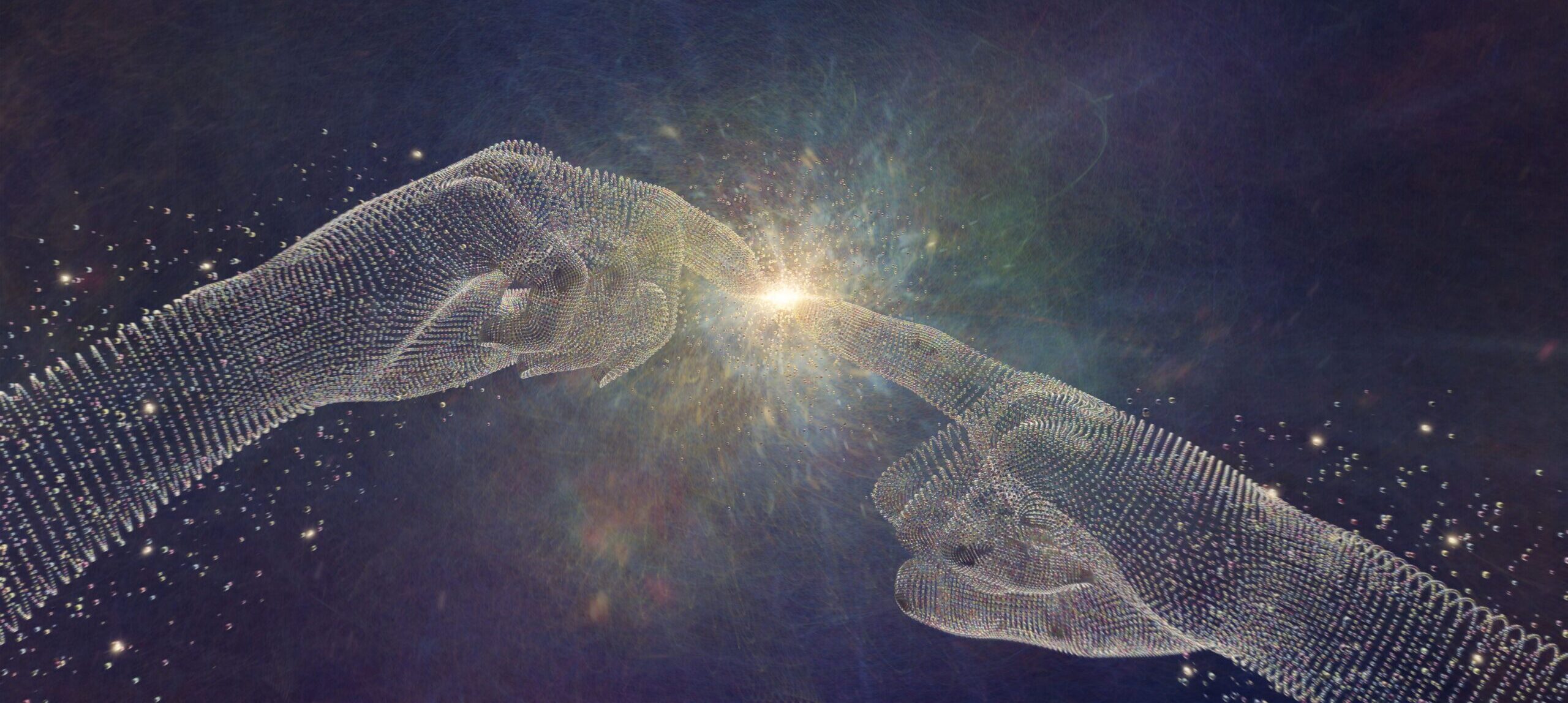This review appears in the Spring 2019 issue of Modern Age. To subscribe now, go here.
The title and subtitle of this slim but chock-full book indicate its chief topic and main thesis. Our age has a defining idol and that idol is a false religion in which man worships himself. This humanitarian faith is necessarily at odds with Christianity. But, alas, it has made significant inroads into the Christian community, including at the highest levels. Thus is limned a gigantomachia, not so much between God and man, but between the oldest temptation and its Christian antidote. The great deceiver is still up to his tricks, aping the authentic Item and deceiving the proud and the gullible. Mahoney intends to call his bluff.
At this point the reader could be forgiven for thinking that The Idol of Our Age is essentially a theological exercise. That is not the case. The opening line of the work declares, “The book you are about to read is a learned essay at the intersection of politics, philosophy, and theology.” Although theology plays a necessary part, the analysis is a dialectical whole.
For example, the humanitarian idol captured the imagination of elites in Europe some time ago and informed the construction of the European Union. Members of the political and cultural elites constitute a secular clerisy, and the dogmas of its pseudo-religion have shown up as approved thoughts, politically correct speech, and inquisitions. Just ask Rocco Buttiglione or Oriana Fallaci. Over here, many open-borders advocates and progressive Christians follow the humanitarian lodestar. To them, national borders are suspect, if not immoral, and addressing the rights and sufferings of humanity is deemed the soul of morality. Democratic nation-states that take their sovereignty seriously are thus put on notice: they should be at the service of the human race. Open borders and open arms go together with open minds and open hearts.
The idea of the religion of humanity originally came from philosophers, so Mahoney has to deepen these political considerations in order to grasp it more fully. Moreover, since philosophy conceived the ersatz religion, philosophy can (and should) critique it. Happily, he has considerable help in this regard, as thinkers before him had identified the thing in its infancy and leveled still-pertinent criticisms.
A paradigmatic case is Eric Voegelin’s critique of Auguste Comte. Comte was the self-proclaimed founder and prophet of a “religion of Humanity” that expressly copied Catholicism but which had humanity itself as “the Great Being” to be worshiped. This new cult was the culmination of Western humanity’s progression from previous theological and metaphysical ages. With industry replacing war as the means of satisfying human material needs, Comte argued, the religion of Humanity provided the necessary spiritual form to the material organization of advanced society.
Commenting on this proposal a century later, Voegelin incisively pointed out its “incipient totalitarianism,” born of its aversion to all “transcendence.” In addition, its “blindness to the depths of the soul,” its ignorance of “evil spirits,” and its “spiritualization of utilitarianism” meant that it was entirely ignorant of the drama of good and evil in the soul. For Voegelin, the whole metaphysical and moral inheritance of the West was denied by this humanitarian religion. By opting for it, Western man would lose his essential bearings. In a parallel treatment, Raymond Aron pointed out that the progressive attitude led to an apolitical pacifism, disdainful of political liberty and ignorant of the permanent sources of conflict in man and social existence. In this optic, the political nature of man and the political condition of mankind were ignored or wished away.
These criticisms, offered early in the study by Mahoney, set the template for others that follow.
The list of authors Mahoney authoritatively treats indicates a remarkable breadth and intriguing variety. Among the good guys are Pierre Manent and Benedict XVI; Vladimir Soloviev and Aleksandr Solzhenitsyn; Aurel Kolnai and Eric Voegelin; Orestes Brownson and Cardinal Newman. Just above, I mentioned Raymond Aron. Among the exponents of some version or another of humanitarianism, one finds well-known figures such as Tolstoy, Pope Francis, and Jürgen Habermas, along with Comte. Dostoevsky’s Grand Inquisitor also makes an appearance. These lineups indicate that the phenomenon is neither recent nor narrowly parochial. Americans dealt with it; Europeans and Russians too. The nineteenth century saw it, as did the twentieth. Catholic and Orthodox thinkers seem particularly attuned to it (with one major exception), but it is visible and disturbing to nonbelievers as well.
One is also struck by the variety of perspectives critically brought to bear on the phenomenon. The disciplined use of memory, the imagination, reason, and faith are all represented, from historical and theological writers (Solzhenitsyn and Soloviev) to professional theologians (Newman and Benedict), with moral philosophy (Kolnai) and political philosophy (Manent, Voegelin, and Brownson) represented as well. Mahoney lets his multifaceted topic, not academic disciplinary boundaries, direct his choice of guides.
The range of figures discussed is not mere eclecticism. Mahoney deems Kolnai “our deepest philosophical guide to the humanitarian ethos.” Kolnai argued that “the sovereignty of man” in the humanitarian attitude means that reality must take a back seat to human will. God is an afterthought or is tailored to self-defined “human needs.” The humanitarian ethos, in short, is an egalitarian version of “man, the measure of all things.” Alas, this self-appointed sovereignty necessarily leads to the “self-enslavement of man.” Tocqueville indicated where egalitarianism could lead with his haunting description of democratic tutelary despotism.
In a wrinkle added to Tocqueville, Kolnai talked up “privilege” as a desirable (if imperfect) social marker of the hierarchy of values to which the human will should conform. Thus socially inscribed outside of him, values’ objectivity (and plurality) is made visible. Man is free before them, but not sovereign. In any event, modern man must learn or relearn to recognize “the sovereignty of the Object.” In the 1940s, Kolnai foresaw the advent of calls for the destruction of the ostensibly elitist “canon of great books”—as well as for a conception of “homosexual rights” in which equality was indiscriminately applied to human sexuality.
Manent, however, receives Mahoney’s highest accolades. Focusing on contemporary Europe, Manent argues that the humanitarian de-Christianization and depoliticization of Europe go hand in hand. The religion of humanity aspires to replace both the imago dei and the zöon politikon. In this, argues Manent, it violates Europe’s vocation.
What is this vocation? Europe was born of the need of Christian peoples to form political communities in which they could exercise their political natures, while also responding to the Word of God. Unique political forms (the nation) and political regimes (the modern state, representative government) were their inventive responses. The great concert of Europe, rivals and brothers, was perhaps the most intricate arrangement, with nations engaging themselves and the rest of humanity for good and for woe. After World War II and the collapse of the Soviet Union, however, Europe needed new inventions to address changed circumstances. Alas, its elites succumbed to “the humanitarian temptation” and sought to build the new Europe on “humanitarian illusions.”
Manent has no trouble showing just how benighted this unpolitical attitude is. It is also anti-philosophical, since it denies the significant human and collective differences that call for philosophical reflection. Under the religion of humanity, Socrates could not pose his impertinent questions. Without the Socratic example, however, Western humanism is mortally defective. Humanitarianism is thus a betrayal of Europe’s philosophic, as well as Christian, origins and nature. Although sometimes at odds, today the political man and the believer should join forces against their common foe.
Theologians make essential contributions to Mahoney’s analysis as well. To some imponderable extent, humanitarianism is a work of the devil. Benedict’s exposition of the temptations of Christ in his meditative Jesus of Nazareth lays out the humanitarian temptation to which Jesus was exposed and to which his disciples will be as well. Benedict is emphatic: Christianity “is not a humanitarian moral message.” The provision of bread is not the thing most necessary: preaching, hearing, and putting the Word of God into action is. This means faith, hope, and charity must not be confused with secular compassion or ideals.
The Orthodox thinkers Soloviev and Solzhenitsyn are particularly good on the necessity of Christians’ confronting evil, sometimes with force of arms. Solzhenitsyn’s deft portrait of a genuinely pious but feckless Tsar Nicholas II in The Red Wheel shows what happens when a Christian ruler lacks courage. Christians need to be “tough-minded and humane,” according to the chapter’s subtitle. Both Solzhenitsyn and Soloviev accordingly made a critique of Tolstoy, including his pacifism, central to much of their work. The reader of these two Russian authors also notices the exquisitely dialectical character of their writings. They are much more open to the complexity of things and willing to engage multiple points of view than the contemporary proponents of humanitarianism are wont to do. Here one finds genuinely open reason joined with intrepid faith.
As befits its ersatz character, humanitarianism’s exponents are generally of a lesser intellectual alloy than the critics. For example, the only reason to be interested in the thought of Pope Francis is the office he holds and the damage he is doing to the Church. This lesser alloy, however, does not mean that the phenomenon itself is of lesser interest, theoretically or practically. With it, we enter into what traditional theology called the mysterium iniquitatis. Awkward questions about the nature of modernity also arise. The religion of humanity is inconceivable apart from modern ideas and aspirations. Is it an eccentric result or an apocalypse?
Thinkers as varied as Voegelin, Leo Strauss, and G. K. Chesterton have argued that modernity itself is inconceivable apart from Christianity. Modern promises aped and aimed to replace Christian ones, modern moral values did the same with the theological virtues. At its most radical, atheistic humanism aimed to outdo the biblical God by delivering on His promises in this world. Descartes’s three great promises at the end of the Discourse on Method are an early declaration of this intent.
The Church, of course, had to deal with these declared enemies and their assault. I do not need to go into the history and vicissitudes of her dealings. An initial awareness and resistance, followed by a later truce, as old enemies became weary and faced common foes, indicate one line of development.
But during the course of its battle with modernity, the Church also entered into competition with it. True, she was doing her duty in caring for errant humanity by pointing out harmful errors and suggesting remedies. But the battle stirred passions and ambitions in her as well. For example, never before had she said that poverty could be eradicated. After all, her Lord had declared that “the poor you have with you always.” But modern promises and performances provoked her to such claims. Around the time of Pacem in Terris (1963), the Church became a version of Hegel’s “beautiful soul,” fueled by a vision of a perfect world. Unlike the original version, though, she demanded that this fallen world become a place of peace, of fraternity, of realized justice.
In this competition with modernity, the devil saw his opportunity. First, the Church would adopt modernity’s inflated expectations of mankind in this world. Then he would get her to focus on them, distracting from her true mission. As for nonbelievers, they were already caught in the web. Modernity had always harbored the principles of the religion of humanity. With the collapse of the previous incarnations of demonic evil, National Socialism and Communism, adherents of modernity had one last version of human sovereignty to embrace. As is their wont, Europeans led the way, but progressives of all countries have joined in.
The irony is that just as Europe is showing that humanitarianism is a form of cultural as well as demographic suicide, the Roman pontiff is steering the bark of Peter in accordance with that lodestar. Jacques Maritain saw this tendency emerge after Vatican II and called it by its name: kneeling before the world. In these circumstances, I believe that American Catholics of the orthodox sort have a special responsibility to their faith and to their fellow Westerners. America helped saved the West during two great ideological struggles of the twentieth century; our times require American Catholics to deal with a third. Books like The Idol of Our Age tell me that I am not alone in this reading of the signs of the times.
Paul Seaton teaches philosophy at St. Mary’s Seminary and University in Baltimore, MD. His translation of Rémi Brague’s The Kingdom of Man was recently published.
Founded in 1957 by the great Russell Kirk, Modern Age is the forum for stimulating debate and discussion of the most important ideas of concern to conservatives of all stripes. It plays a vital role in these contentious, confusing times by applying timeless principles to the specific conditions and crises of our age—to what Kirk, in the inaugural issue, called “the great moral and social and political and economic and literary questions of the hour.”
Subscribe to Modern Age »












